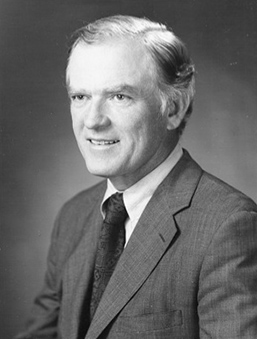
Charles Daly, known to most as “Charlie,” was one of the most successful publishing executives the business has known. During his career, he helped build Medical Economics in to a major publishing force through his adherence to the highest publishing principles, his innate leadership skills, and his respect for people.
Charlie started at Medical Economics, then a family-owned medical publishing business, in 1962 as an ad space salesman. In 1965, seeing little opportunity for career growth, he left the publishing business and spent the next two years at the Klemtner and Robert A. Becker advertising agencies. He was hired back by ME owner Bill Chapman as publication manager to salvage the money-losing publication RN. Within a year, Charlie had turned the publication around, from losses of $100,000 to profits of $100,000, and changed the format from digest-size into a full-size publication.
In 1968, Chapman sold the business to Litton Industries. In the ensuing years, Charlie was promoted to publisher of Medical Economics magazine. Charlie rose rapidly, from publisher to executive vice president. Upon Chapman’s retirement in 1973, he became CEO of Medical Economics. Throughout the early 1970s, he added new publications to the ME stable, such as Hospital Physician, PDR, Drug Topics, and The Red Book. During these years, and well into the 1990’s, he succeeded in making Medical Economics the number one medical publication. While this took place under his management, he was always the first to share the credit with his team.
From 1975 through 1981, Charlie was CEO of Litton Publications, which had acquired ownership of ME. In this role, he oversaw numerous healthcare publications; elementary, high school, and college text books; and trade books. Numerous new books were added, and ME was at the cutting edge of the computer age, mechanizing the delivery of PDR directly to doctors. ME also ventured into the consumer business, with Home publication, Next magazine, and more.
In 1981, when Thomson Business Information bought Litton Publications, Charlie became chairman of Medical Economics, Inc., Thomson charged him with realizing even more growth. In the ensuing 10 years, the book companies were sold, and Charlie was primarily involved in acquisitions and product development, acquiring a number of veterinary magazines, healthcare newsletters, dental magazines, and Patient Care.
As Medical Economics grew from a family-owned business to a major presence in the medical publishing field, Charlie was the guiding force. He brought the spirit of the family-owned business forward though his management style and his treatment of valued clients, developed through experience and mentors such as Bill Chapman and Harry Towe. He didn’t put too much stock in formulas, matrixes, and methodologies. It was about people. “Who’s reading the magazine? What do they want to read? What information is valuable?” He demanded editorial research that provided those answers.
With Charlie, the integrity of the publication and editorial always came first. Carroll Dowden relates a story that is indicative of the ethics Charlie brought to the job: A major pharmaceutical company, ME’s largest advertiser at the time, demanded that its ads run in the first quarter of the book, saying its research showed more exposure there. Charlie responded that the magazine’s policy was to rotate all advertisers – large and small – through quarters of the book, out of fairness. The advertiser insisted ME meet the demand or it would drop all advertising. Charlie said, “Sorry to lose you, but we can’t compromise on the principle of treating all advertisers alike.” The company pulled out, costing the magazine several million dollars of advertising. The company eventually returned, on Charlie’s terms. In the meantime, Medical Economics enjoyed record revenue, even without its largest advertiser.
While he led ME to great success, Charlie Daly was all about ethics and people. He was the consummate people person; a great listener, clear communicator, a man with a sense of humor and humility. No one was below Charlie or unworthy of his time and attention. He greeted and treated everyone, from the mail clerk to the secretary to the top executives, with respect, attempting to make everyone feel they had a voice.
Today, those he mentored continue to adhere to the standards he set, both for success, and behavior.